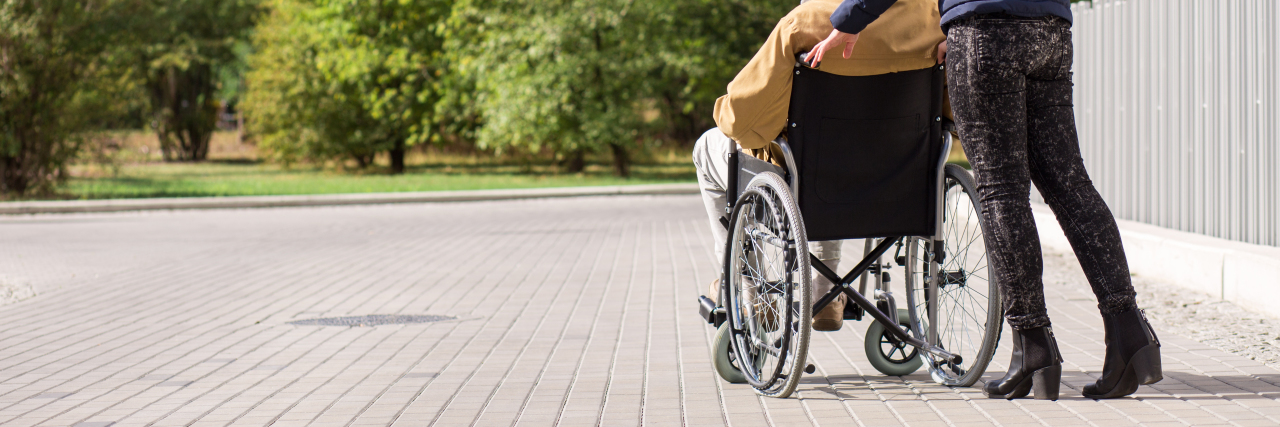“Always ask permission before touching.” This instruction, included in a training manual for prospective coaches of sports for people with disabilities, which I am currently working through, really stood out to me. As soon as I read it, I felt an uncomfortable knot in my stomach. Not because of the direct nature of the instruction; of course you should have someone’s permission before touching them, but because it reminded me of all the times strangers have taken the liberty of touching me or invading my personal space without permission.
Such invasion can take many forms and is seemingly an annoyingly common experience for people with disabilities. It certainly involves unsolicited physical contact, but can also be unwanted interference with or use of our mobility aids or other essential equipment, a person standing so close we feel unsteady on our feet or unable to move away or adjust our position comfortably, or the seemingly endless stream of unwanted comments or personal questions from strangers or those we barely know.
To be clear, I am not saying that the people who perform such invasions necessarily have malicious intentions. However, when reflecting on just how often I have been subject to invasions of my space and privacy, as well as on how differently people without disabilities are treated, I have come to the conclusion that some people in the general community feel entitled to treat people with disabilities in this way.
Just the other day, I was out having a meal with my family, and an acquaintance of ours just happened to be at the same restaurant. We got to talking, and everything was fine until the person went to leave. After saying their farewells, I was patted on the head without my permission. Perhaps recounting this experience here is an over-reaction; the touch wasn’t harmful, but I couldn’t help but notice that my other, able-bodied family members weren’t treated in the same way.
I am an adult, not a little girl. It is not the first time this has happened to me, and I have never been comfortable with it. If you are not very familiar to me, please don’t touch me without my permission! If you wouldn’t do it to someone who is able-bodied, don’t do it to someone with a disability.
Uninvited questions or comments, usually related to the disability, are another “invasion” people with disabilities often have to confront on a daily basis while going about even the most basic of tasks. This is not to say people with disabilities shouldn’t take appropriate opportunities to educate a well-meaning person who doesn’t know about life with a disability. There are some trail-blazing advocates out there, which is fantastic. Advocacy is always a positive!
However, people with disabilities shouldn’t feel obliged or pressured to answer questions or engage with unsolicited comments all the time. It is not our innate job to be educators for people who want personal details about our lives or don’t understand disability. Advocacy should be a choice with which we are comfortable, not forced on us by a stranger’s thirst for details.
And so I say to those who want to ask questions or aren’t sure how to interact with people with disabilities: please don’t single out a person with a disability. When you want to interact, ask yourself: “would an able-bodied person be comfortable with what I am about to do, say or ask?” If the answer is no, please don’t proceed! Don’t make disability the first topic of conversation when you meet or see someone.
If the time, place and approach is appropriate and your behavior is not invasive or overbearing, many people with disabilities, myself included, will be happy to speak with you and answer your questions. If we chose not to engage with your questioning though, please respect this as our right, and please don’t be rude or make assumptions. We are only trying to go about and enjoy our lives, just like you!
Getty image by Katarzyna Bialasiewicz.

